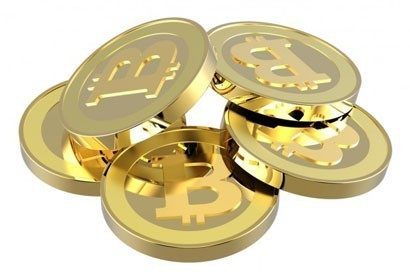Bitcoin-Aware Britons Trust Digital Currency as Much as Pound Sterling
Almost 40% of Britons who have heard of Bitcoin consider the anonymous virtual currency to be as trustworthy as pound sterling.

Of the 2,700 British people asked, 32% said they had heard of the decentralised currency, which is created by computers 'mining' or solving complex mathematical problems, and of these, 38% believe Bitcoin can be trusted as much as the national currency.
A further 14% say Bitcoin can be trusted more than the pound, while 38% believe it will be the currency of the future.
Conducted by On Device Research, the Bitcoin survey is the first of its kind and was carried out in the UK, US and Argentina, where 73% of those who have heard of Bitcoin trust the currency, which is prone to violent price fluctuations and attacks from online hackers.
Must read: What is Bitcoin and how does it work?
"Confidence and awareness of Bitcoin and digital currency is growing fast as perceptions of traditional currency have been hit hard by the recent financial crisis," said Pamir Gelenbe, founder of st-art and Hummingbird Ventures Venture Partner.
"While negative perceptions of the national currency and high levels of confidence in Bitcoin might not come as such a surprise in Argentina, the data from the UK and US is more striking - with high levels of awareness and a strong feeling that digital currencies are the future."
In the US, 16% of those aware of Bitcoin say they trust it more than the dollar, while 44% of Argentinians said the digital currency is appealing because traders do not have to deal with financial institutions.
Decentralised, Bitcoin has no central bank and is not controlled by any government. Instead, Bitcoin is 'mined' by computers solving complex mathematical equations. The equations automatically adjust to compensate for the number of computers working on the problems, limiting how often coins can be mined.
Once mined, coins are stored by users in virtual wallets on their computers, and can be exchanged through the internet for real-world goods and services, or withdrawn through Bitcoin exchanges like Mt. Gox as pounds, dollars, euros or any other currency. One Bitcoin is worth around £67, as of 26 June, but had reached more than £170 per coin in April.
Gelenbe continued: "Digital currency also represents a significant opportunity to help the four billion people on this planet that don't have bank accounts - Bitcoin makes it possible to hold money on a phone or PC and transfer money seamlessly from anywhere to anywhere in a split second, without expensive wire transfer fees.
"Over time, these 'unbanked' consumers around the world will adopt Bitcoin - just like they have adopted mobile phones - and use it to store and transfer their money."
When asked what the best thing is about Bitcoin, Argentinian respondents said the lack of financial institutions, while the British and Americans praised its speed and convenience.
As for negatives, the most popular Argentinian answer was its minimal use in trade, Britons dislike its volatile exchange rate, and Americans noted how you can't physically hold Bitcoin currency.
© Copyright IBTimes 2025. All rights reserved.






















